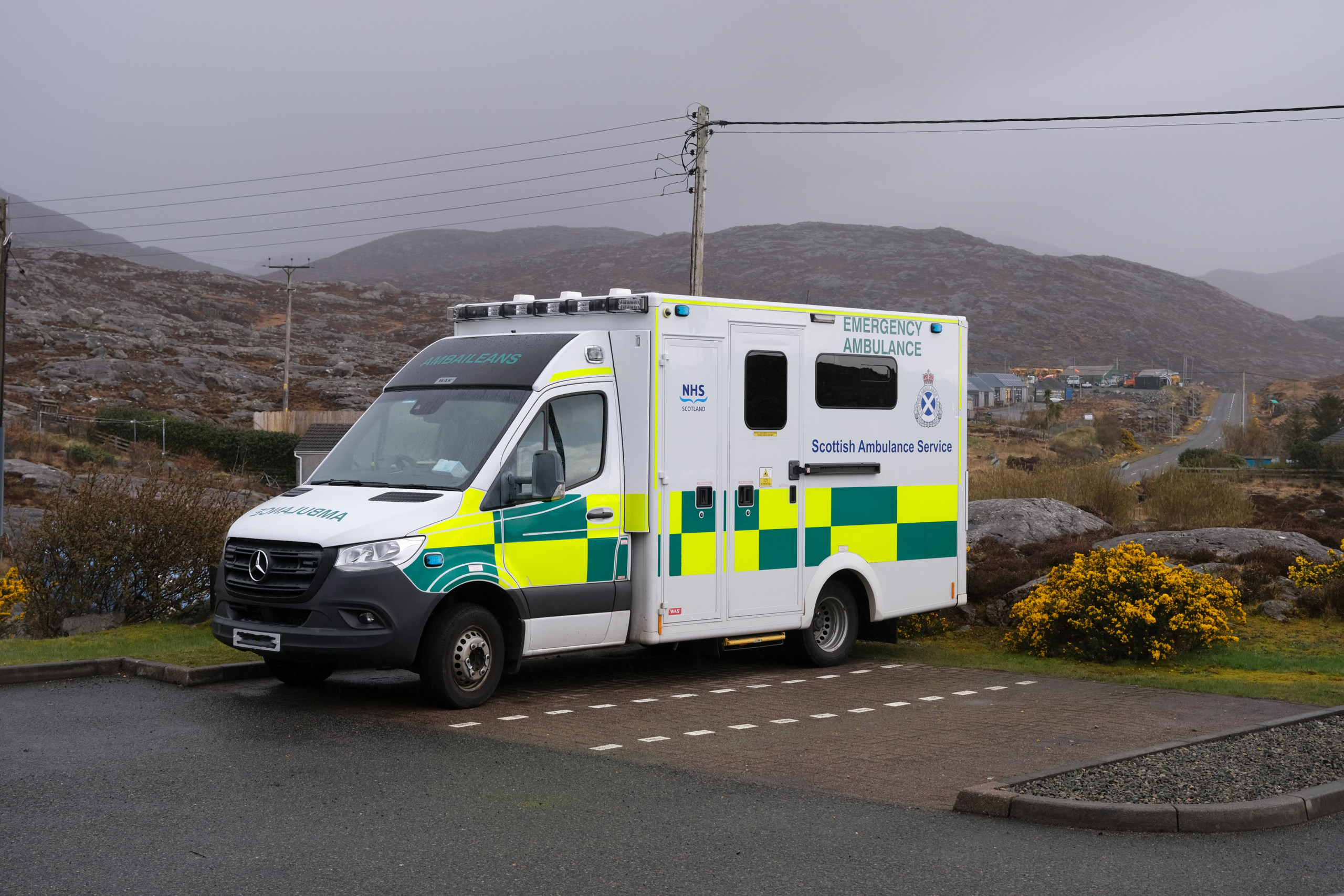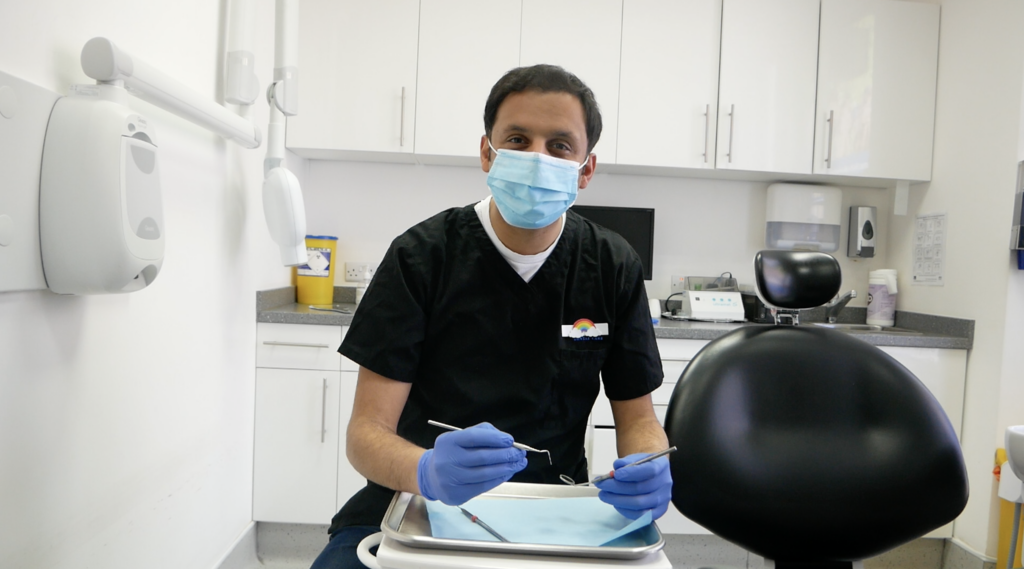An NHS fit for the future

How Labour will build an NHS fit for the future:
- Fund 160,000 new NHS Scotland appointments every year to cut waiting times
- A 10-year workforce plan
- Improved access to cutting-edge clinical trials and specialist centres across the UK
- Access to a mental health professional in every GP surgery
- A National Care Service worthy of the name
Skip to:
The 1945 Labour government founded our National Health Service on principles that have stood the test of time:
The best health services should be available, free for all. Money should no longer be the passport to the best treatment. People should get the best that modern science can offer.
Labour will always defend the NHS. We have saved the NHS before, and the next Labour government will get it back on its feet. A Labour government, in the UK or Scotland, will never privatise the NHS and we will act to end the development of a two-tier system of health that has prevailed under the Conservatives and SNP.
While the Covid-19 pandemic placed the NHS under unprecedented stress, the reality is that the health service was struggling before then. Because of the crisis we see today, Scottish Labour is committed to immediate action to tackle waiting list backlogs.
This first step to save our NHS and deliver change can start on 5 July with the election of a UK Labour government, but Scottish Labour’s ambition goes beyond this. Scottish Labour is committed to protecting the NHS in Scotland for the generations to come, and making sure it is fit for the future. To achieve this we must value our dedicated NHS workforce and improve access to care, as well as deliver long-term reforms to modernise services and bring care closer to communities.

Immediate recovery
Scottish patients and NHS staff were promised a recovery following the Covid-19 pandemic, but the pressures across the system remain acute. The equivalent of almost one in six Scots are on NHS waiting lists for appointments, tests or treatment.
Tackling this crisis has to be the first priority. That is why a UK Labour government will invest in the NHS, paid for by closing the non-dom tax loopholes and cracking down on tax avoidance. UK Labour’s plans will deliver millions every year in health-related funding for Scotland. This funding would be sufficient to deliver 160,000 more appointments every year for patients in Scotland by operating additional clinics and theatre procedures in the evenings and weekends. This increased capacity would help to cut waiting lists, drive down waiting times, and reduce the need for patients to pay out of their own pocket for private care.
Future of the NHS
Protecting the NHS is about more than reducing the backlog. The NHS of tomorrow must be rooted in local communities where Scots can easily and conveniently access healthcare services and have a greater say and input over their care. Scottish Labour has proposed reducing the number of NHS territorial boards from 14 to three. We will take account of the special circumstances of the islands and carry out a review of special boards to reduce bureaucracy and ensure that resources are focused on the frontline. These reforms are about decentralising decision making and delivering services closer to communities.

Workforce
The NHS in Scotland would be nothing without our dedicated and hardworking staff. They are the ones who provide the clinical expertise and compassionate care that makes our health services so valued by patients and the Scottish public.
It is crucial that our NHS is a place where staff feel valued and empowered to deliver the best care possible to patients. That is why one of Scottish Labour’s first priorities would be to deliver a retention strategy that offers experienced clinicians and healthcare workers options to extend their time working within the NHS. We want Scotland’s NHS to embrace new ways of working, supporting staff to do their jobs flexibly and providing opportunities for further training, clinical research, and mentoring.
Creating a supportive culture is about more than pay. That is why Scottish Labour wants all healthcare staff to have access to dedicated changing facilities, rest rooms for breaks, hot meals 24/7, and protected time for learning and professional development. Staff must also feel empowered to offer new ideas and speak up when things go wrong – not face a culture of bullying and cover up. Scottish Labour believes there needs to be a review of how adverse incidents are handled in Scotland’s NHS and of whistleblowing practices in all health boards.
In the long term, Scotland needs a proper workforce plan. Scottish Labour would ensure that Scotland’s NHS has a 10-year workforce plan that creates domestic medical and nursing training places, forecasts service demands, and meets the needs of future generations.
As part of our plans to reform the NHS, Scottish Labour has committed to establishing a National Clinical Council of healthcare professionals who can directly advise on this and inform government planning on service delivery, workforce planning, and patient safety.

Better services
Scottish Labour wants the health service to be about more than treating illness. It must also help people to live healthy lives. That means more quality services that offer early interventions, are easy to access within people’s communities, and encourage healthy living.
We owe it to our young people that they are given the best start in life. This begins with maternal and child health so that mothers are given access to good healthcare which will reduce inequalities, and support them in having a healthy pregnancy and safe childbirth.
Despite the publication of a Women’s Health Plan, women continue to face inequalities in how they experience healthcare. We want to see greater uptake and ease of access to screening services, including the roll out of cervical screening self-sampling. Scottish Labour believes all women must have access to the full range of reproductive services, irrespective of where they live.
The local GP surgery is the first port of call when a health problem starts, and where patients should be treated by staff they know and trust. Excellent primary care is the key to earlier diagnosis, but in recent years it has become harder to access GP appointments as services struggle to cope with demand. Scottish Labour wants to see an end to the 8am rush for appointments and a return to advance booking of consultations.
Modern GP surgeries provide a range of services, delivered by multidisciplinary teams including mental health workers, physiotherapists, pharmacists and nurses. Growing these teams to meet demand will be a key factor within our workforce plan, and Scottish Labour is committed to improving the joint working between primary care teams through records and data sharing, and successful triage.
Where relevant in Scotland, Scottish Labour supports the implementation of the expert recommendations of the Cass Review to ensure that young people presenting to the NHS with gender dysphoria are receiving appropriate and high-quality care.
Mental health
Recent years have seen an increase in those living with poor mental health. This is still not given parity with physical health. The proportion of health funding dedicated to mental health in Scotland lags behind other UK nations, and Scottish Labour has called for this to be increased to 11 per cent of frontline NHS spending.
For those who find themselves in crisis, it is crucial that services are available. Scottish Labour believes Scotland needs specialist mental health provision within emergency departments where those in need of immediate support can be treated.
Not everyone with poor mental health will need acute or specialist care, but Scottish Labour wants to improve the support available to people in their own communities. That is why we have committed to ensuring there is a mental health professional available in every GP surgery.
In recent years child and adolescent mental health services (CAMHS) have been overwhelmed with demand and far too many children and young people have been turned away or left on long waiting lists without treatment. Scottish Labour is committed to reforming the referral and triage process to ensure no one is turned away without support. We will learn from best practice already happening in parts of Scotland and ensure successful pilots are rolled out country wide.
Scottish Labour fought for counselling to be available in schools, but provision is still variable. A one size fits all approach does not work and each child or young person will have different needs, with some requiring specialist support. Scottish Labour believes every child and young person should be able to access specialist mental health services at school.
Cancer
Cancer remains the most common cause of death in Scotland, and everyone will know someone, whether it is a family member, friend, or neighbour, who has received a cancer diagnosis. Early diagnosis is paramount as any delay can change someone’s diagnosis from survivable to incurable. We need targeted interventions to improve the uptake of cancer screening in our most deprived areas. Scots should have access to the latest advances in screening, so Scottish Labour supports the roll out of lung cancer screening across the country.
We also need to shorten the length of time that patients wait for tests and to start treatment following a diagnosis. Scottish Labour’s plans for more appointments will help reduce those waiting times and our plans to modernise hospital equipment with state-of-the-art scanners will also help find cancer earlier.
Scottish Labour will also work with clinicians and cancer charities to design a cancer strategy that sets out a comprehensive vision for cancer care, including how we improve screening services and reduce waiting times.
Dentistry
Across Scotland it is getting harder to access NHS dentistry, and we need to reform the current system if this service is to be sustainable for the future. Scottish Labour wants to end the postcode lottery in access to NHS dentistry and will develop incentives for newly-qualified dentists to work in NHS dentistry in areas where they are most needed, so that everyone is able to register as an NHS patient.
Promoting good oral health from a young age is also crucial for preventing decay and dental problems in later life. The world-leading Childsmile programme was designed by Scottish Labour and we want to build on this legacy. We want to see the scheme expanded with more targeted interventions in deprived areas, and will consider options for encouraging older children and teenagers to engage with their local dentist.
Public Health
We will prioritise prevention, taking steps to help children develop habits from an early age. As well as ending the sale of single use vapes, we will ensure the next generation can never legally buy cigarettes. Across the UK, Labour will also ban the promotion and advertising of vapes and junk food towards children and young people.
Labour is committed to reducing gambling-related harm. Recognising the evolution of the gambling landscape since 2005, Labour will reform gambling regulation, strengthening protections. We will continue to work with the industry on how to ensure responsible gambling.
Scotland’s drug deaths crisis is a public health emergency, bringing heartache to individuals and communities. As it stands, many people struggling with drug dependency are either unable to access recovery and rehabilitation services in their community or have to wait too long. Scottish Labour is committed to a harm reduction approach, prioritising recovery services in local communities and tackling the issue at its root. We support the opening of a pilot safe consumption room in Glasgow, alongside drug testing facilities and greater access to naloxone packs. In recognising the need to get recovery services right across communities, Scottish Labour is committed to improving access to residential rehabilitation to all, regardless of where they live and fully implementing the Medication Assisted Treatment standards, including better integration between recovery services and mental health support.
Technology
Scottish Labour believes that if we are to create an NHS that is fit for the 21st century, the NHS cannot stand still. New technologies can help improve access to healthcare, deliver faster and more effective ways of working, and offer new treatments for patients. Scottish Labour wants to ensure that patients and staff in Scotland benefit from these advances, making the care in Scotland the best that it can be.

Access to healthcare
Virtual care can allow patients to be monitored remotely and allows for treatment at home. The potential for this extends beyond reducing delays to discharge from hospital and can deliver a convenient route to help patients manage their conditions in a way that suits them. Virtual care can also allow individuals to access expert care without having to travel long distances, which can be especially valuable for individuals living in rural parts of Scotland. That is why Scottish Labour wants to see virtual care scaled up to support those living with chronic conditions such as COPD, heart failure, and diabetes, as well as improving access to specialist advice and monitoring.
Digital solutions can also improve the way that patients engage with and access care across the health system. Scottish Labour wants to increase the availability of online booking for appointments, routine checks and repeat prescriptions, harness the benefits of digital reminders, and increase access to health advice online. The NHS is modernising in other parts of the UK and Scottish Labour believes NHS Scotland should also embrace these technologies, learning from best practice, as UK Labour reforms the NHS app in England giving patients greater control over how they interact with health services.
More effective ways of working
Scotland’s GPs still do not have access to e-prescribing and rolling this out across the country would be a priority for Scottish Labour. Patient records are still not connected across all health services and this can lead to disjointed working and miscommunication with patients. Scottish Labour believes patients should own and have control over their own health records. Patients should be empowered to allow all services to access their records to improve their health journey.
Digital technologies can also provide patients with options to join clinical trials, alternative routes to care besides going to their GP, and reminders of screening for which they are eligible.
With thousands of patients on waiting lists for tests and diagnoses, we also need to embrace innovations that will speed up the process. Much of the equipment used by the NHS is outdated and has not kept up with new developments. New AI-assisted scanners can assist clinicians in diagnosing patients faster and improve outcomes by identifying issues earlier because they are more effective at finding smaller tumours and saving lives. Scottish Labour wants Scotland’s NHS to have access to state-of-the-art MRI and CT scanners, and we will review NHS procurement strategies to ensure that equipment and technologies are updated regularly.
New treatments
There is no shortage of exciting innovation in Scottish universities and research centres. The revolution taking place in data and life sciences has the potential to transform our nation’s healthcare; and with our world- leading life sciences sector and universities, Scotland has much to contribute to these developments.
The Covid-19 pandemic showed how strong mission- driven, industrial strategy partnering with industry and academia, could turn the tide on a pandemic. However, improvements can be made in how innovation and breakthroughs in Scottish universities translate into widespread uptake of new treatments and procedures. At a UK level, Labour will accelerate the approval of clinical trial activity in the NHS and deliver better access for patients to the latest treatments, regardless of where they live.
By using NHS data to identify patients who would benefit, and by reforming the process for establishing clinical trials, UK Labour will open up access for patients beyond the big research centres. A Labour government will also work with the devolved governments so that patients can access clinical trials regardless of which NHS area they live in. Patients should receive the best possible treatment and care that is available across the UK. Scots that require specialist care should always be able to be treated in specialist centres elsewhere in the UK and vice versa. This collaboration and sharing of resources and talent saves lives.
Across the UK, Labour will also adopt better horizon scanning for emerging treatments, like new revolutionary drugs for dementia, so that we can prioritise and prepare the NHS to implement them at speed.
Social care
Social care is crucial for the dignity and wellbeing of our family, friends, and neighbours. Labour is committed to ensuring everyone lives an independent, prosperous life. Social care is vital to achieving this, but hundreds of thousands of people suffer without the care they need for a dignified life. The sector in Scotland and across the UK needs deep reform: there are inconsistent standards, chronic staff shortages, and people are not always treated with the care, dignity and respect they deserve.
In Scotland, the Feeley Review in 2021 made several recommendations for improving social care for which Scottish Labour continues to campaign. We want to see non-residential care charges abolished without further delay, and unpaid carers granted a right to respite.
Recruitment remains a challenge and limits capacity in the sector. Scottish Labour believes social care staff should be treated like the skilled professionals they are, acknowledging the important work that they do. Fair pay agreements for the social care sector in England form part of Labour’s New Deal for Working People but there is no reason why the Scottish Government could not take sector-wide negotiations forward in Scotland today.
Scottish Labour first called for a National Care Service over a decade ago, but we cannot support the SNP’s current plan which focuses on changing structures rather than culture. We want a National Care Service that is worthy of the name and works with local communities to design services and improve the quality of care across Scotland.
The pandemic restrictions saw care home residents separated from their loved ones with significant impacts on some of the most vulnerable in society. Scottish Labour is committed to protecting the right of care home visiting and will implement Anne’s Law.
Labour will stop the chaos in Scotland’s health and care services, turn the page, and reform them in line with Labour’s founding principles so that our NHS is fit for the future.
Help deliver change to Scotland.